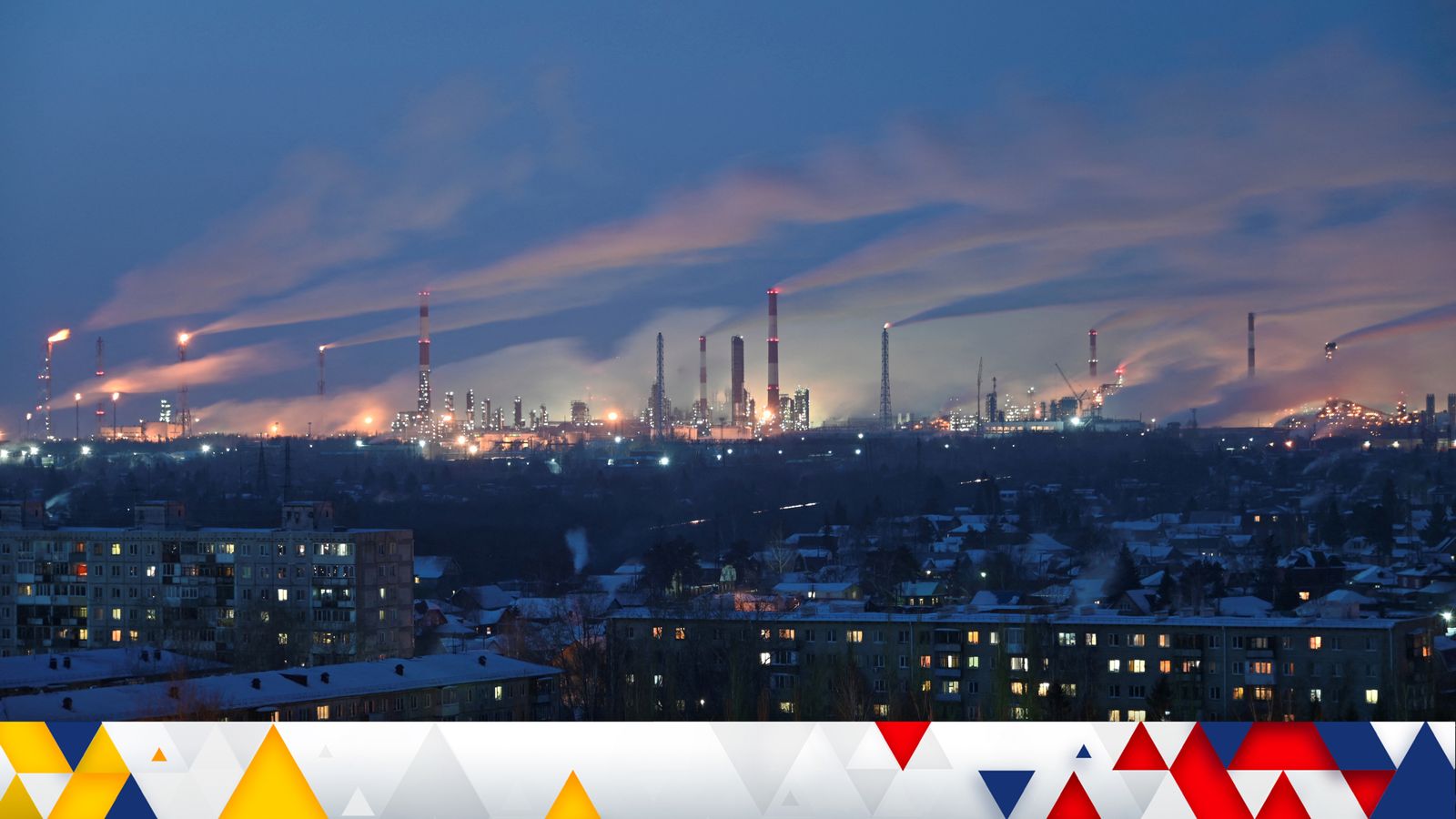Russia is the world’s third biggest oil producer, pumping out 10.5 million barrels a day or 11% of the global total.
That represents 44% of all of its exports – sales that bring in 17% of Moscow’s federal tax revenues according to the UK government – and therefore a significant element in the funding of Vladimir Putin’s war machine.
Only America and Saudi Arabia produce more of the black stuff.
Ukraine war live news – latest updates as girl, 6, ‘killed during Mariupol ceasefire’
That’s why US President Joe Biden says that sanctions against the oil industry target the “main artery” of Russia’s economy.
American restrictions are significant because it is the world’s biggest economy.
The White House says the measures “will deprive Russia of billions of dollars in revenues from US drivers and consumers annually”.
Ukraine war: In the midst of pounding mortars, remarkable kindness is shown by people fleeing the violence
Ukraine war: Poland offers all its MIG-29 fighter jets to US in plan to provide aircraft to Kyiv
Ukraine war: Temperatures set to drop to -10C as thousands flee Russian attacks
Last year, the US imported nearly 700,000 barrels per day of crude oil and refined petroleum products from Russia – but that represents just 3% of Russia’s exports.
With America able to rely on major energy resources of its own, it is far from Moscow’s biggest oil customer.
Germany, Europe’s biggest economy, is the country most reliant on Russia for the commodity, with its imports from the country representing 30% of its oil usage.
France and Italy, at 13% each, are next, followed by Britain, then South Korea and only then the US, according to figures from the International Energy Agency.
For sanctions to be most effective, those big buyers would need to fall in line.
But unlike previous US efforts to isolate oil producers – such as Iran – America is not threatening to punish foreign entities that carry on filling the Kremlin’s coffers with petrodollars.
In fact, Mr Biden offered understanding to those of its allies which, because of their reliance on Russian oil, “may not be in a position to join us”.
European countries have expressed a desire to wind down their dependence on Russia as an energy source – but that will take time.
For Britain, businesses and supply chains have been given nine months to make the transition.
That may darken the prospects for the Russian economy heading into next year but it looks less likely directly to spike the guns of its armed forces in the short term as they continue to attack Ukraine and its people.







